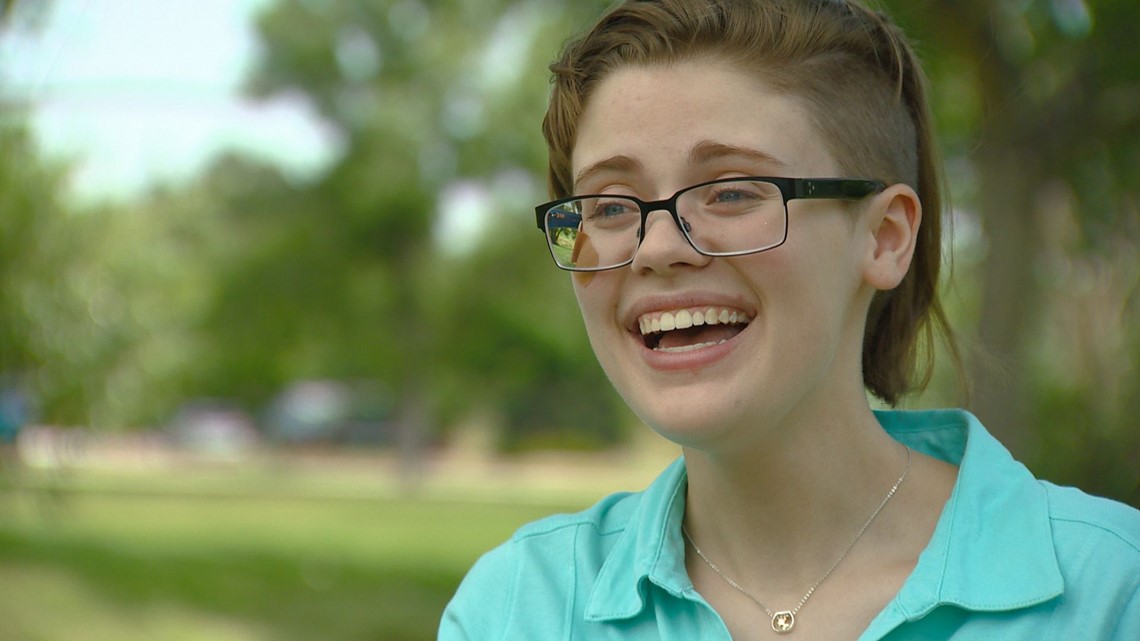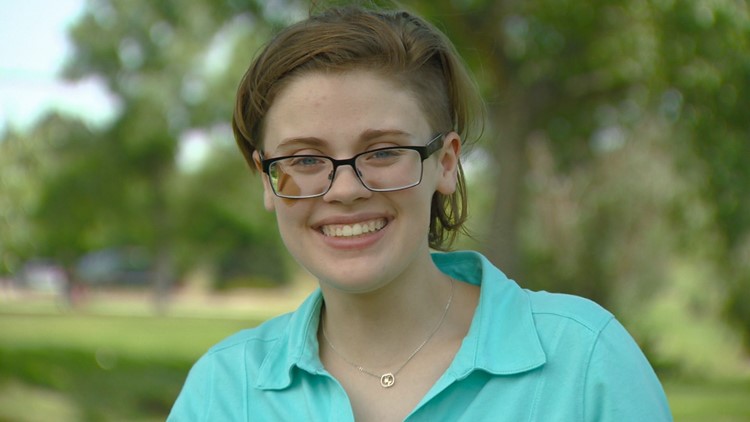BROOMFIELD, Colo. — Katie Wilson was sitting in geography class about a year and a half ago when her head began snapping backward.
The movement was sudden and repetitive, and she didn't know why it was happening.
"I couldn't tell whether or not I was doing it on purpose. It was really strange," she says.
Wilson went to doctors and the emergency room after that. Eventually, when a head bob turned into arbitrary squeaks, and even hurting herself, doctors diagnosed Wilson with Tourette Syndrome - a nervous system disorder responsible for involuntary tics, or random words or sounds.
Today, when we meet her, she's wearing a bandage below her eye to protect her face, which she has been scratching lately.
Wilson explains that she may go weeks with only a few noises or twitches. There are other days when tics come on constantly. Anything from stress, to sleep, to excitement can affect the cycle.
“We’d be here all day if I was going through all of them," she says, referring to the spontaneous motor and vocal tics she experiences personally.
Her high pitch noises, throat rolls and neck spasms are nothing compared to her wisdom and infectious smile. This weekend, Wilson, a high school sophomore in Broomfield, will be inducted into Tourette Association of America's Youth Ambassador program. She'll travel to San Antonio for training, so she can return home and better help people understand the condition.


“If I’m going to be stuck with this for however long I’m stuck with it - for whether that’s a day, a year, the rest of my life - I’m going to make the most of it and do what I can to help other people," she says.
Many people think of Tourette's incorrectly. The syndrome is defined by more than shouting obscene words - a trait of Tourette's called coprolalia, which only applies to about 10 percent of people who have the condition.
Wilson has been most scared of her Tourette's at the times she hits, or chokes herself. Tourette's is a not a punch line, she says.
"It's hard not being in control of your body, and the noises that you make and the words that you say," she says. "It's second nature to be in control of what noises you make, or what you're saying as you're speaking, whether or not you're going to move or stomp your foot, or jump up and down... having that control taken away is scary."
There is no cure, but Wilson plans to use her new role to advocate for both herself, and others.
"I have exercise-induced asthma, so in PE classes as a kid, I would say, 'hey, if I can run these laps with my asthma, then you definitely can.’ You know, using that as an encouragement, not as a ‘my life is so much harder than yours' ... but just as evidence, further evidence that it can be done. And now I have the opportunity to do that for people dealing with ticking disorders."
Wilson hopes the rest of the world will one day understand that those with Tourette Syndrome have no more control over their actions than someone trying to control a cold.
"The same way that you notice if you're sneezing, or you have the hiccups. You know that you have the hiccups, but you can't control exactly when one will come, or exactly what it'll interrupt," she says.
“All interesting stories have large conflict, ya know, whether that’s internal conflict, external conflict and it’s sort of like, well - this is just something that’s making my story more compelling and interesting, and I’m just waiting to see what happens next."



